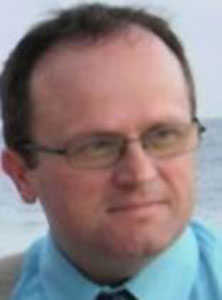Marty Anderson has lived on the Kenai Peninsula for 33 years and his longevity in the area became the deciding factor when he filed on the last day for the Sterling and Funny River district seat on the Kenai Peninsula Borough Assembly.
“I believe I have a better understanding of the community — of what it’s been through and where it’s going,” he said. “I have the mentality of the people that live in this district and could represent a majority of the people better.”
Anderson has worked in the welding technology industry for 28 years and is an owner and instructor of Alaska Technical Training. Since 2003, he has served on the Kenai Peninsula Borough School District Board of Education. From 2009 to 2013, Anderson served on the Alaska Workforce Investment Board, a committee that advises the governor on where to spend funds for worker training.
The governor-appointed board looks at where the greatest need for jobs are or what training can be provided to make sure Alaskans get those jobs first, he said.
“Every one oilfield job produces six to seven other jobs,” he said. “When you lose 100 oilfield jobs you are losing 600 to 700 other jobs.”
Anderson moved to Alaska in 1981 from the south side of Chicago, an area that was economically depressed and at the time had one of the highest unemployment rates in the country, he said. With his father out of work, they moved to Alaska for the job opportunities available.
Anderson graduated Soldotna High School in 1982 and entered the job market with college welding course experience while he was still in high school. He was immediately hired out of school and became a pipe welder. By age 22, he said he was making an extremely good wage, an opportunity he wants for all youths today.
After he sustained a back injury on the job, his career shifted to welding inspector. He has 4,000 hours in technical training and works as a consultant for various oil companies to make sure they are in compliance with state and federal requirements.
“If we have a leak like what they had in Prudhoe Bay in 2006, that makes it extremely difficult to open up additional lands for drilling and production in areas,” he said. “Ninety percent of land in Alaska is controlled by federal government and we don’t want those types of incidents preventing us to bring our resources to market.”
With his background in the oil and gas industry, he said his experience would be beneficial as the borough starts to plan for the growth to come with the increased activity in the Cook Inlet with the Alaska LNG Project looking at constructing a liquefied natural gas facility in Nikiski.
The increase in road traffic and a population influx would put a strain on the current infrastructure of road maintenance and schools. The growth would have a dramatic effect across the entire central Kenai Peninsula, he said.
Anderson said the Sterling and Funny River district is unique because it is separated by a river and is made up with people who’ve chosen to live an independent lifestyle. While the needs of seniors should be a priority, at the same time he recognizes the community also has younger families moving in, evident by the student growth at the Sterling Elementary School.
Anderson and his wife DeeDee Anderson have four children and live off Robinson Loop Road. He said one thing he would like to see in Sterling is a bike path and safer areas for kids to play.
He said there have been several bike-vehicle related fatalities in the area and Sterling is the only central community that doesn’t have a bike path.
“If we want to attract youth to our community, we need a reason for them to be here,” he said.
Anderson said he voted no on Proposition A on animal rescue because he doesn’t support adding additional taxes and creating more government. He said it is unfortunate some people are not responsible pet owners.
“The problem is only one specific group would pay the bill, landowners,” he said. “I’m a conservative by nature and that service should be shared equally.”
He said he likes having plowed roads, paved streets and those types of services, but like his neighbors, he chose to live in a rural area for a reason.
“I don’t want infringements on my freedom anymore than absolutely required,” he said.
On the issue of the Central Peninsula Hospital deciding to enter a transfer agreement, he didn’t support the borough-owned hospital giving up local control. He said he received treatment for a back fusion and his wife underwent chemotherapy for lymphoma at the hospital.
“I like the fact we have an elected individual to sit on the hospital board to make decisions on my behalf,” he said. “They will use the same facility I do and live in the same community.”
Anderson said he believes the school board has done a good job with the district budget and having a large enough surplus to deal with federal changes. The rising cost of the Affordable Care Act left a $1.6 million hit to the school district, he said.
“If we are going to be a responsible elected official, we have to keep a reserve,” he said. “You can’t operate a business of that size without a reserve.”
As a school board member, he said he appreciates the faith people have put in him to make decisions on their behalf. He said he’s learned not everyone will be pleased with his decisions but has made an emphasis to listen to all perspectives.
“You can’t go in with a preconceived idea and say, ‘This is how it’s going to be,’” he said. “You also can’t be easily swayed and need to look at all the facts to make the best informed decision.”
Reach Dan Balmer at daniel.balmer@peninsulaclarion.com.

